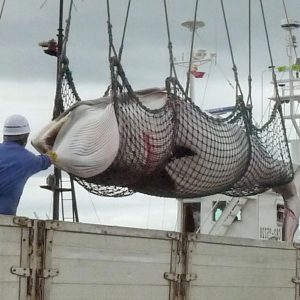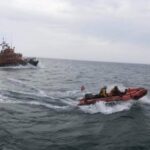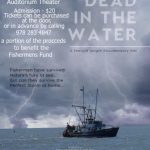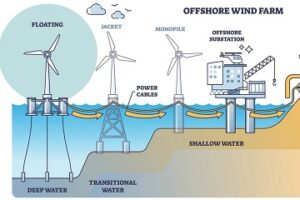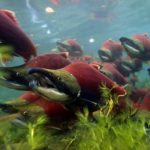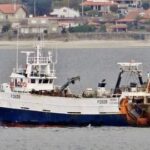Tag Archives: Japan
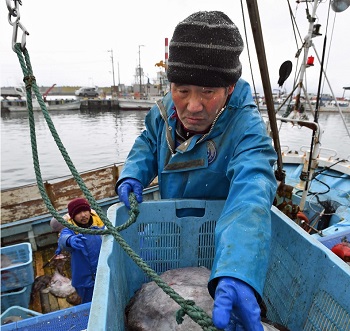
Hokkaido fishing villages face tough decision over nuclear disposal sites
A frosty wind was blowing in from the Sea of Japan at the Suttsu fishing port in Hokkaido in late November. There, catching anglerfish with a grim look on his face was 77-year-old fisherman Kyozo Kimura.,, In 1977, Kimura, a native of the town of Matsumae,,, Longline fishing of trout prospered at the time, and he reminisced about the time when he got a new 29-ton ship,,, But that dream did not last long.,, Kimura ventured into scallop farming. In August, local residents saw shocking headlines that Suttsu was considering applying for preliminary research into being a final disposal site for high-level radioactive waste produced from nuclear power plants. Hearing the news, Kimura,, >click to read< 13:51
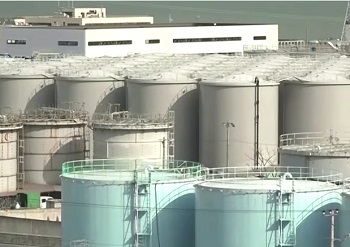
Japan is planning to release millions of gallons of treated radioactive water from Fukushima Dai-Ichi nuclear plant into the Pacific Ocean
The release likely won’t occur for another two years and could take decades to complete,,, Dumping the water into the ocean threatens to hurt Japan’s relationship with South Korea, and comes despite opposition from environmental groups and the local fishing industry, which is still struggling to recover from the disaster. The release of the water “could deal a fatal blow to the future of Japanese fishery,” said Hiroshi Kishi, the chairman of the Federation of Japan Fisheries Cooperatives. “We absolutely oppose to the release of the water.” >click to read< 16:13
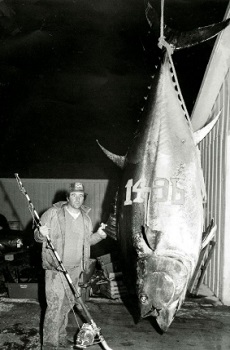
A Tuna’s Worth – Inside a Canadian fishery that pursues them
Bluefin tuna are a luxury that feeds the egos of many, the bellies of few.,, North Lake, a community too small to support an ATM, calls itself the tuna capital of the world. In the 1960s and 1970s, anglers here regularly landed bluefin that broke world records. People came from all over the planet to hunt the storied giants, which swam faster and fought harder and grew bigger than any other sport fish. In 1979, a North Lake fisher named Ken Fraser caught the largest in history, at 679 kilograms. In a black-and-white photo commemorating the event, Fraser stands wide-eyed, blood-spattered, and completely dwarfed by the hanging behemoth—as if he were the prey, not the predator.,, On the other side of the world, in Japan, bluefin was well on its way to becoming the most expensive item on sushi menus. photos, >Audio report, click to read< 09:57

4,000 wind chimes displayed in hopes of large catch in city hit by 2011 tsunami Great East Japan Earthquake
The wind chimes have been hung at four commercial buildings facing onto Kesennuma Bay and that opened in July. At one of them called Mukaeru, a local designer has painted fireworks on a passage wall in fluorescent colors. Wind chimes are traditionally thought to drive away evil, and the ones on display have been purified at a shrine. Each of them also bears a strip of paper inscribed with a prayer for a large catch. The wind chimes are illuminated at night, creating a fantastic atmosphere for visitors. >click to read< 15:52
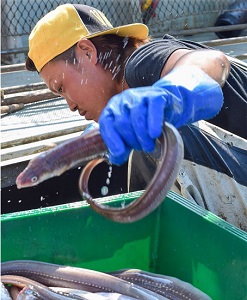
Japan: A Fisherman in the Time of the Coronavirus
This coronavirus is unbelievable. Nobody’s catching any fish in Japan, but even so, they’re selling for next to nothing. I’m a fisherman from a village in Miyagi Prefecture. Every day you hear reports that Japan’s “entering a crucial stage in the fight against COVID-19.” It’s the same for the fishing industry. Of course, we’re taking the same actions as everyone else against the coronavirus, but we have our own problems too: meager hauls and plummeting fish prices. I make all sorts of seasonal catches through the year—mainly autumn chum salmon, but also conger eels, Pacific cod, red sea bream, olive flounders, sea squirts, Kinka mackerel, Spanish mackerel, common octopuses, giant Pacific octopuses, crabs . . . in fact, so many I can’t write them all down. These are really fertile fishing grounds. Or maybe I should say they were really fertile fishing grounds. >click to read< 09:37
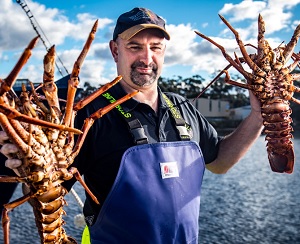
Coronavirus: Emergency ‘lobster flights’ to save $800 million worth of seafood
Hundreds of tonnes of lobster and abalone will be flown on emergency freight flights out of Australia in a $110 million push to stop a massive downturn across the seafood sector. The government will fund 200 40-tonne flights of Australian produce to China, Japan, Hong Kong, Singapore and the United Arab Emirates as stock goes to waste and staff are laid off. In Western Australia alone up to 98 per cent of its lobster produce usually heads to China. Fishers have pulled up their pots as they cannot get the product into centres such as Shanghai. >click to read< 08:33
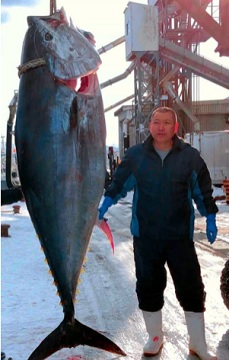
“New Year’s happy news.” Fishing boat reels in $1.79 million tuna to start the year
Captain Masahiko Yamamoto has the fish story of the new year, the day he hit the lottery at sea, landing a million-dollar catch. Yamamoto, 57, was on his boat when he heard that a 276-kilogram bluefin tuna he landed sold at the first auction of the year at the Toyosu fish market in Tokyo on Jan. 5. The winning bid of 193.2 million yen ($1.79 million) from a Tokyo-based sushi chain operator was the second-highest ever in the New Year’s auction.,, The waters here have produced tuna fetching the highest price in the New Year’s auction for nine consecutive years, making Oma famed as the “pole-and-line fishing bluefin tuna town.” >click to read< 11:22
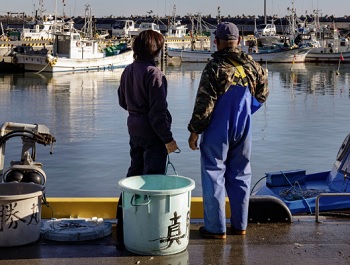
Japan wants to dump contaminated water from the nuclear plant. Fishermen fear the worst.
The devastating earthquake and tsunami that swept through northern Japan in March 2011 took a lot from Tatsuo Niitsuma, a commercial fisherman in this coastal city of Fukushima Prefecture. The tsunami pulverized his fishing boat. He demolished his home. Most devastating of all, it cost the life of his daughter. Now, almost nine years after the disaster, Niitsuma, 77, runs the risk of losing even more, all his livelihood, as the government considers releasing contaminated water from a nuclear power plant destroyed by tsunami waves. >click to read< 08:09
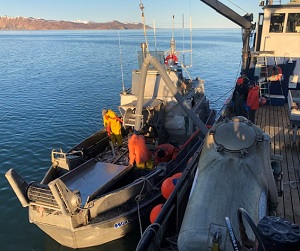
Fishermen participating in Alaska’s largest herring fishery have a huge quota to fill next year. But the primary customer isn’t buying.
“I’m a recovering herring fisherman,” joked Bruce Schactler. Schactler, who lives in Kodiak, has been fishing in Togiak off and on since 1985. But he won’t be returning this summer. “The market is so bad that Trident will not be buying fish this year, so we’re not going. Every ton that is frozen and shipped off to Japan is a loser. There’s no money being made,” he said. >click to read< 07:06
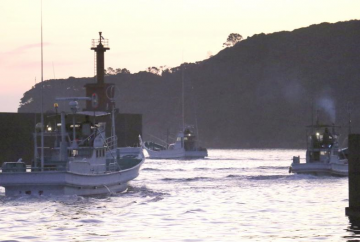
Whaling town Taiji begins dolphin hunt
The hunting season for dolphins using a controversial “drive-hunting” method began Sunday in the whaling town of Taiji, Wakayama Prefecture, without any major protest from animal-rights groups. While local police officers were on high alert for anti-whaling campaigns, 12 boats left the town’s port around 5 a.m., but all returned without any catch,,, An ad hoc police box has been set up near the port and, together with police officers, personnel from the Japan Coast Guard will be deployed around the area. “Thanks to the security, we can do (hunting) with ease,” >click to read< 15:42
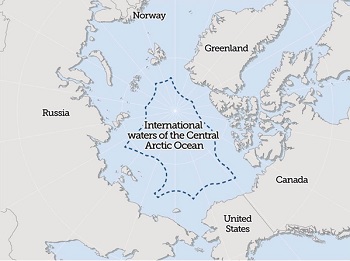
U.S. ratifies The Agreement to Prevent Unregulated High Seas Fisheries in the Central Arctic Ocean
The United States has become the fourth jurisdiction after Canada, the European Union and Russia to ratify a landmark international agreement that aims to prevent unregulated commercial fishery in the high seas of the Central Arctic Ocean, officials at the State Department announced Tuesday. The Agreement to Prevent Unregulated High Seas Fisheries in the Central Arctic Ocean, which was signed in Ilulissat, Greenland last October, includes the so-called Arctic Five – Canada, Norway, Russia, Denmark (Greenland and the Faroe Islands), the U.S. – as well as the major fishing nations – Iceland, Japan, South Korea, China and the EU. >click to read< 17:56
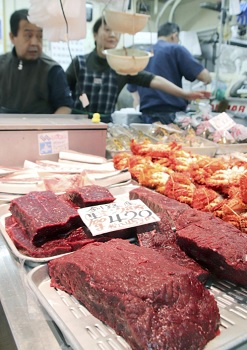
1st whale meat auction held since restart of Japan’s commercial hunt
Whale meat auctions were held Thursday in different parts of Japan, the first since the country ended its 31-year commercial whaling hiatus earlier this week, with some cuts sold for over 10,000 yen ($93) per kilogram. A whaling fleet left Kushiro on Japan’s northernmost main island of Hokkaido on Monday to hunt in coastal waters and took two minke whales later the same day. Approximately 66 kg of meat from one of the two whales was then brought to Taiji, Wakayama Prefecture, for an auction because a vessel from the town was among the fleet. >click to read< 09:49
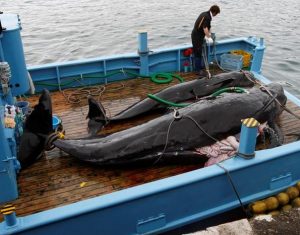
What’s behind Japan’s support of whaling?
Japan has for decades been steadfastly defiant about hunting whales despite widespread anger, including from key allies like the United States. After roughly 30 years of what it has called scientific research whaling, which saw several hundred minke whales taken annually in the Antarctic and North Pacific, Japan in December announced it would leave the International Whaling Commission(IWC) and resume commercial whaling on July 1. >click to read< 14:21
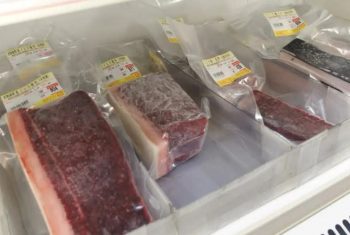
Why Japan risked condemnation to restart commercial whaling
Fishermen in the village of Taiji are counting the days until July, when they will be able to hunt large, fatty minke whales commercially for the first time in decades. The community, which faces the Pacific coast of central Japan, is still haunted by its moment in the international spotlight 10 years ago, when the documentary “The Cove” criticized its dolphin culls and attracted a flood of activists. Yet, a sense of optimism is spreading. “The availability of more types of whales will make more people interested” in eating the meat, predicted Shinichi Shiozaki, who sells processed whale products. “It’s a good thing.” >click to read<13:14
B.C.-led international expedition to probe ailing Pacific salmon stocks
An unprecedented international collaboration could revolutionize salmon science and fisheries management, return forecasting and even hatchery output. Nineteen scientists from Russia, Canada, the United States, Japan and South Korea are set to probe the secret lives of five Pacific salmon species with a four-week grid search and test fishery across the Gulf of Alaska. The expedition begins next week aboard the Russian research ship MV Professor Kaganovsky. “We know virtually nothing about what happens to salmon once they leave near-shore waters in the Salish Sea,” said expedition organizer Dick Beamish. >click to read<13:56
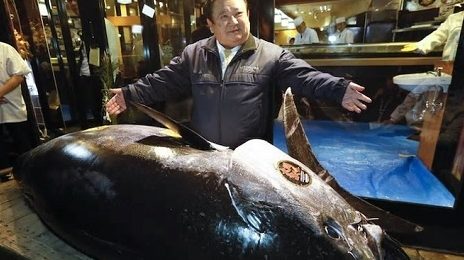
Japanese bluefin tuna sold at auction for record $4.4m
A giant bluefin has been tuna was sold for a record 333.6 million yen ($A4.4 million) in the first auction of the year at Tokyo’s new fish market. The 278-kilogram tuna, valued at 1.2 million yen per kilogram, was caught in Oma, one of the best tuna fishing grounds in Japan, on the northern tip of main island Honshu. It was bought by Kiyoshi Kimura, president of Sushi Zanmai, a major sushi restaurant chain. “I did not expect it to be that expensive. However, since I was able to buy a good one, I’d like customers to try it,” Kimura told reporters. >click to read<22:51
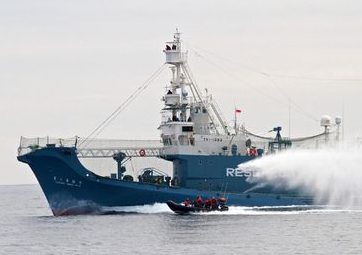
Japan to start whaling again
Japan has announced it will resume commercial whaling next year and withdraw from the International Whaling Commission. A government spokesman made the announcement on Wednesday in a move expected to spark international criticism. The decision was made at a cabinet meeting on Tuesday after the government decided it would be difficult to resume commercial whaling while a member of the international body. “We have decided to withdraw from the International Whaling Commission in order to resume commercial whaling in July next year,” top government spokesman Yoshihide Suga told reporters. Mr Suga said whaling would be limited to Japan’s territorial waters and exclusive economic zones. >click to read<11:56
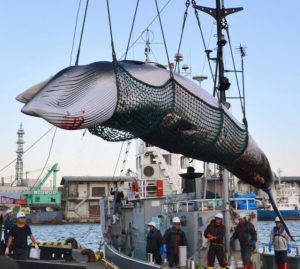
Japan to pull out of IWC to resume commercial whaling
Japan has decided to pull out of the International Whaling Commission (IWC), officials told AFP on Thursday, as Tokyo reportedly gears up to resume commercial whaling activity next year. Such a move would spark international criticism against Japan over whale conservation and deepen the divide between anti- and pro-whaling countries. “We are considering all options” including the possibility of withdrawal from the 89-member IWC, Fisheries Agency official Yuki Morita told AFP. Another official at the foreign ministry confirmed “all options are on the table but nothing formal has been decided yet”. >click to read<17:10
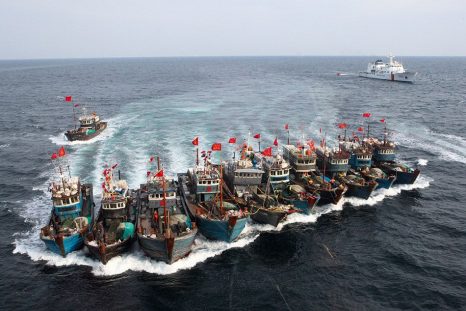
China, Spain, Taiwan, Japan and S Korea account for 85% global fishing efforts
The research, led by scientists at Global Fishing Watch, a research organization that uses satellite data to track fishing activity, examined some 22 billion ship-location data points for more than 70,000 industrial fishing vessels between 2012 and 2016. It found commercial fishing hotspots in the northeast Atlantic and northwest Pacific, as well as in nutrient-rich areas off the coasts of South America and West Africa. The study also found that fleets from just five countries — China, Spain, Taiwan, Japan, and South Korea — account for more than 85% of fishing efforts in the high seas. >click to read< 09:51
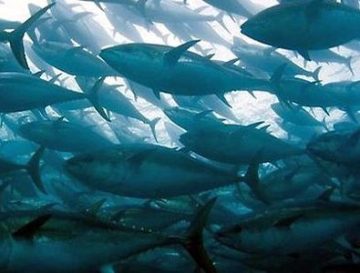
Japan to enforce penalties for bluefin catch quota violations starting next month
The Fisheries Agency will start enforcing penal regulations on Pacific bluefin tuna caught by Japanese fishermen in January, in line with stricter international controls aimed at overfishing. The agency hopes that comprehensive resources management will allow fishermen to continue catching the prized fish amid concerns that global tuna stocks are being depleted, officials said. The Western and Central Pacific Fisheries Commission allocates catch quotas to its members, including Japan and the United States. click here to read the story 16:15
Poor common squid catches to continue in Japan
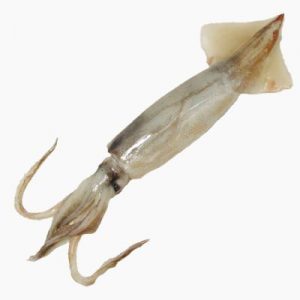 Poor catches of surume-ika, or Japanese common squid, are likely to continue this year. The squid is used in popular home dishes such as sashimi and is also sold in a form that is dried overnight. According to a long-term forecast about fishing conditions by the Japan Fisheries Research and Education Agency, arrivals of surume-ika squid to sea areas near Japan will likely be almost the same or lower compared with those in last year, when catch volumes of the squid were at a record low. Many fisheries experts share a view that the poor catches have been affected by decreases in the number of eggs the squid lay due to the decreasing sea water temperature in the East China Sea during recent years. click here to read the story 14:58
Poor catches of surume-ika, or Japanese common squid, are likely to continue this year. The squid is used in popular home dishes such as sashimi and is also sold in a form that is dried overnight. According to a long-term forecast about fishing conditions by the Japan Fisheries Research and Education Agency, arrivals of surume-ika squid to sea areas near Japan will likely be almost the same or lower compared with those in last year, when catch volumes of the squid were at a record low. Many fisheries experts share a view that the poor catches have been affected by decreases in the number of eggs the squid lay due to the decreasing sea water temperature in the East China Sea during recent years. click here to read the story 14:58
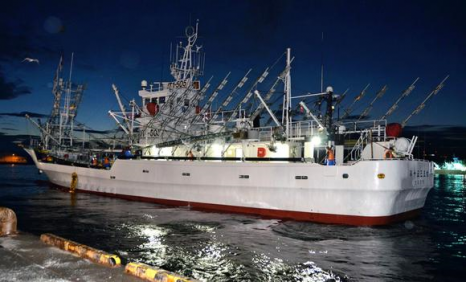
Tokyo’s proposal to cap saury catch tanks after neighbors slam it as unfair
The North Pacific Fisheries Commission held its annual meeting earlier this month to discuss an international framework to prevent overfishing. But its eight members were ultimately unable to agree on individual quotas for Pacific saury, a popular seasonal fish, amid strong opposition from China and other players. Tokyo had proposed annual caps of 242,000 tons on Japan’s catch, 191,000 tons for Taiwan and 47,000 tons for China. State-run China Central Television reported that Japan blamed China for the shrinking stock of saury, and said Tokyo’s proposal was “irrational” and unfairly tough on its neighbor. Chinese microblogging site Weibo erupted with disapproving posts. Users questioned why Japan should be allowed five times the catch when its population was just one-thirteenth of China’s, while others said Japan’s own problems with overfishing tuna gave it “no right to criticize other countries.” click here to read the story 18:18
Japan: New law a key step to resuming commercial whaling
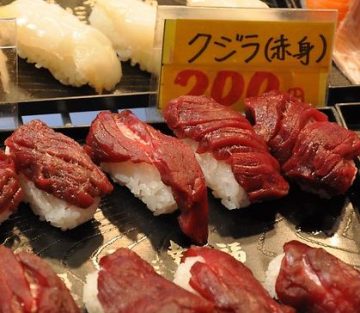 A recent law promoting whaling allows Japan to take a key step towards resuming commercial hunting of the giant mammals that are “a great source of food,” officials said on Thursday. Japan defies international protests to carry out what it calls scientific research whaling, having repeatedly said its ultimate goal is to whale commercially again. In the 2016-2017 season, its fleet took 333 minke whales in the Antarctic. The new law, passed in June, will help enshrine as a “national responsibility” an activity that was previously just a tacit policy, said Shigeki Takaya, director of the Whaling Affairs Office at Japan’s Fisheries Agency. click here to read the story 14:06
A recent law promoting whaling allows Japan to take a key step towards resuming commercial hunting of the giant mammals that are “a great source of food,” officials said on Thursday. Japan defies international protests to carry out what it calls scientific research whaling, having repeatedly said its ultimate goal is to whale commercially again. In the 2016-2017 season, its fleet took 333 minke whales in the Antarctic. The new law, passed in June, will help enshrine as a “national responsibility” an activity that was previously just a tacit policy, said Shigeki Takaya, director of the Whaling Affairs Office at Japan’s Fisheries Agency. click here to read the story 14:06
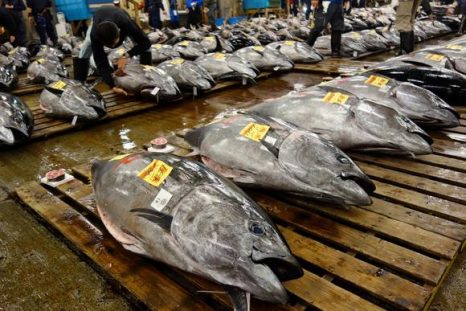
Japan on verge of breaking tuna fishing cap, unable to enforce self-imposed limit
Japan is poised to exceed an international commitment to limit catches of threatened Pacific bluefin tuna just two years after it adopted the cap, which has been undermined by lax compliance. Japan leads the world in catches and consumption of the fish. As of Monday, the Japanese bluefin catch had reached 99.7% of the agreed-on quota for the 12 months ending in June, making it only a matter of time — possibly within the next two weeks — until the commitment is broken. In 2015, Japan adopted limits on catches of immature bluefin, following a decision by the Western & Central Pacific Fisheries Commission. For the year to June, the quota comes to 4,007 tons, 3,995 tons of which had been caught as of Monday. click here to read the story (2 pages) 17:33
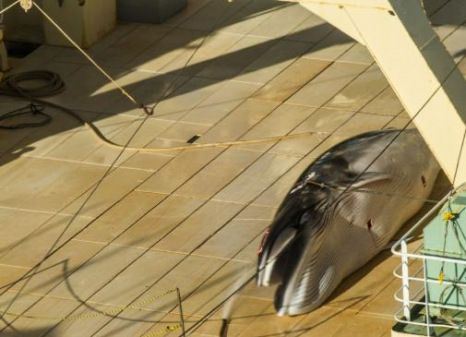
Australian Government ‘disappointed’ as minke whale slaughtered in our waters – Why the Hunt Goes On
The Federal Government has this morning condemned Japan after one of its ships was caught whaling in the waters off Antarctica. Anti-whaling group Sea Shepherd released photos showing a dead minke whale on the deck of the Nisshin Maru ship in the Australian whaling sanctuary. It appears the death was playing out at the same time as Japanese Prime Minister Shinzo Abe’s weekend meeting with Malcolm Turnbull in Sydney, at which the ABC reports whaling was ‘mentioned’, but focused on trade and defence. Japan is a signatory to the International Whaling Commission’s moratorium on whaling in force since 1986. But it exploits a loophole allowing whales to be killed for the purposes of “scientific research”. Read the story here What are the issues behind Japan’s whaling programme, and why has compromise been so difficult? Isn’t whaling banned? Not quite. The International Whaling Commission (IWC), which regulates the industry, agreed to a moratorium on commercial whaling from the 1985. But it did allow exceptions, enough for Japan to hunt more than 20,000 whales since. Read the story here 11:28
A look at the global eel trade reveals widespread fraud – In Japan, 9.6 tons of baby eels magically appeared in 2015
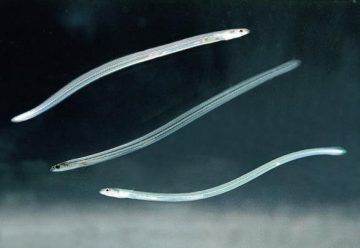 The glass eel trade is coming under international scrutiny. Already, cultured eels account for more than 99% of the world’s supplies. But the farming of these eels is totally reliant on elvers born in the wild. Although techniques to create artificial breeders to allow for the full cultivation of eels have been established, commercial production, as in the case of tuna, remains impossible. A big problem is that much of the glass eel trade essentially takes place in the dark. In Japan, the Fisheries Agency calculates the volume of the country’s eel catches by subtracting the amount of imported baby eels from that of domestic procurement. But the volume of domestic eel catches widely differs from the combined calculations of domestic catches done by prefectural governments, which issue the necessary permits. In the fishing season of 2015, for example, 18.3 tons of baby eels were procured domestically, while 3 tons were imported. The volume of eel caught domestically thus came to 15.3 tons. But data from prefectural governments, once tabulated, puts the total amount of domestic catches at 5.7 tons. The difference suggests that eel farms received 9.6 tons of glass eels from shadowy sources. Read the story here 10:36
The glass eel trade is coming under international scrutiny. Already, cultured eels account for more than 99% of the world’s supplies. But the farming of these eels is totally reliant on elvers born in the wild. Although techniques to create artificial breeders to allow for the full cultivation of eels have been established, commercial production, as in the case of tuna, remains impossible. A big problem is that much of the glass eel trade essentially takes place in the dark. In Japan, the Fisheries Agency calculates the volume of the country’s eel catches by subtracting the amount of imported baby eels from that of domestic procurement. But the volume of domestic eel catches widely differs from the combined calculations of domestic catches done by prefectural governments, which issue the necessary permits. In the fishing season of 2015, for example, 18.3 tons of baby eels were procured domestically, while 3 tons were imported. The volume of eel caught domestically thus came to 15.3 tons. But data from prefectural governments, once tabulated, puts the total amount of domestic catches at 5.7 tons. The difference suggests that eel farms received 9.6 tons of glass eels from shadowy sources. Read the story here 10:36
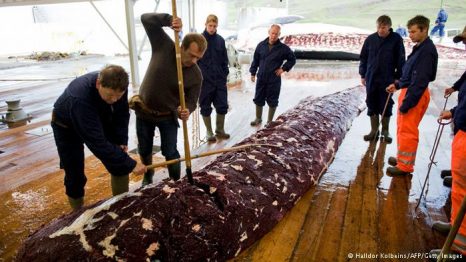
Controversial whale sanctuary to be voted on at the International Whaling Commission
A whale sanctuary in the South Atlantic covering an area as big as India and Russia together: This is the proposal presented by Argentina, Gabon, South Africa, Uruguay and Brazil at the 65th meeting of the International Whaling Commission in Slovenia, which runs from October 20 to 28. A heated debate between some 80 pro- and anti-whaling nations will lead tomorrow (25.10.2016) into voting on whether to give the green light to the proposal, or reject it once again – it happened in 1998. Japan, Iceland and Norway have been the three main countries blocking the sanctuary due – environmentalists say – to their commercial interests. These three nations have used legal loopholes and controversial arguments to keep hunting whales, even in existing sanctuaries. If the new sanctuary proposal is accepted, the immediate question following the hurrahs will be how to really protect whales there from countries that continue to insist on whaling. While the moratorium for commercial hunting from 1985 largely improved the protection of whales, threats such as by-catch or pollution were left out of the agreement. Whale sanctuaries are intended to fill that gap. Read the story here 13:12
Japanese Director Crowdfunds to Screen Pro-Whaling Film in U.S.
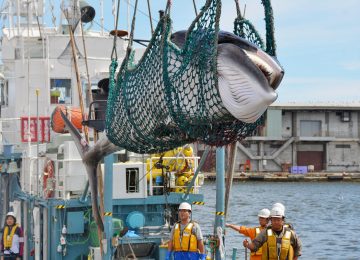 A Japanese filmmaker began a crowdfunding campaign to screen a documentary in the U.S. that defends the controversial whaling and dolphin hunting in Japan in an attempt to replicate the success of the American Oscar-winning film, The Cove, which won the Oscar for best documentary film in 2009 and fixed international attention on the Japanese coastal town of Taiji for its cruel methods of hunting whales and dolphins. The crowdfunding campaign, aimed at spreading awareness about the Japanese film that was conceived as a ‘counter documentary’ to The Cove, Tuesday opened to voluntary funding through its website, said the filmmaker, Keiko Yagi. Yagi’s documentary is called, Behind The Cove – The Quiet Japanese Speak Out, and the director focuses on the other side of the debate on whaling. Read the story here 16:28
A Japanese filmmaker began a crowdfunding campaign to screen a documentary in the U.S. that defends the controversial whaling and dolphin hunting in Japan in an attempt to replicate the success of the American Oscar-winning film, The Cove, which won the Oscar for best documentary film in 2009 and fixed international attention on the Japanese coastal town of Taiji for its cruel methods of hunting whales and dolphins. The crowdfunding campaign, aimed at spreading awareness about the Japanese film that was conceived as a ‘counter documentary’ to The Cove, Tuesday opened to voluntary funding through its website, said the filmmaker, Keiko Yagi. Yagi’s documentary is called, Behind The Cove – The Quiet Japanese Speak Out, and the director focuses on the other side of the debate on whaling. Read the story here 16:28
Why do some countries still hunt whale’s?
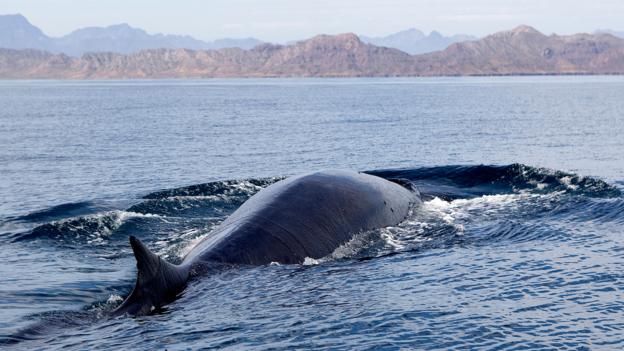 The “hacktivist” group Anonymous recently took down many Icelandic government websites, in protest at the country’s practice of . “Whales do not have a voice. We will be a voice for them. It’s time to speak out about this impending extinction of a species,,, Iceland is not the only country that still practices whaling: Norway and Japan also do so, as do a few smaller populations. This often baffles and horrifies people from elsewhere. If so many people are opposed to it, why are countries still whaling? (because they’re sustainable?) Read the article here 08:39
The “hacktivist” group Anonymous recently took down many Icelandic government websites, in protest at the country’s practice of . “Whales do not have a voice. We will be a voice for them. It’s time to speak out about this impending extinction of a species,,, Iceland is not the only country that still practices whaling: Norway and Japan also do so, as do a few smaller populations. This often baffles and horrifies people from elsewhere. If so many people are opposed to it, why are countries still whaling? (because they’re sustainable?) Read the article here 08:39






